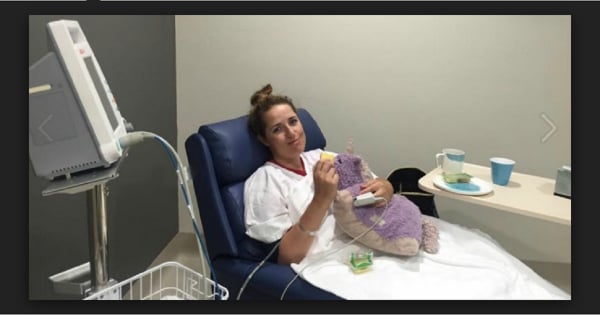
Every time an older celebrity falls pregnant, older women around the world think they can too.
Halle Berry was 46.
Michelle Bridges was 44.
Nicole Kidman was 43.
Sonia Kruger was 48.
Eva Mendes was 41.
Alyssa Milano fell pregnant at 41.
Julianne Moore was 41.
Mary Coustas, 49.
Salma Hayek was 48.
Tina Fey was 44.
Gwen Stefani was 45.
Amanda Peet was 43.
Marcia Cross was 53.
Janet Jackson is pregnant at 49. She announced it recently to explain why she’s had to cancel her upcoming world tour.
Mariah Carey was 45.
Some fess up to having had fertility treatment and some don't. Maybe some haven't needed fertility treatment but the reality is most have. Sonia Kruger, bless her, went out of her way to explain that she needed an egg donation in order to get pregnant at 48, balking at the description of her pregnancy as a "miracle".
“It’s important to me to not mislead women out there as if it was some kind of miracle baby. We tried IVF and it wasn’t successful. The doctors were very clear with me too, that for women over the age of 45, which was the age we attempted IVF, the success rate is zero,” she said in 2012.


Top Comments
Egg donations, surrogacy and gestational carriers just aren't done in Australia and when it comes to adoption laws, we are way behind in attitude and policy.
Oh but are done here in Australia Jo Abi. I have a 16 month old son from an egg donor and carried by a surrogate.
I know many babies born via egg donation and surrogacy. I know many women who put their bodies through IVF for another woman without any payment whatsoever. As altruisim is the only way it can be done in Australia.
Please come and see us at Egg Donation Australia and learn all about this amazing community of egg donors, surrogates and intended parents, where miracles happen every day.
I'm sorry to read the misinformation in this article that may cause many women to give up on their dreams of parenthood. On the contrary egg donation, and surrogacy are all options available in Australia and are altruistic meaning that while the donor or surrogates costs must be covered they can not be paid.
Like others commenting, we placed an ad on Egg Donation Australia after finding my eggs were no longer viable once we had found the cause of my miscarriages and failed ivf's. We had also had a friend offer but this wasn't feasible in the end. From placing our ad to being offered to was less than a month! The wonderful result of this is our beautiful 10 month old daughter with the possibility of more children as we have some more embryos frozen for future use. I was 45 when I fell pregnant on our first transfer from our first donor cycle and my story is by no means a rare one within the Egg Donation Australia community. As far as costs go, it was about a third more than a normal ivf cycle and I just wish we'd been told about this option when we first consulted an ivf's clinic as the two failed cycles we attempted using my own eggs were (now that I know more) never going to result in a pregnancy.
I highly recommend any woman who's been told that there is nothing further to be done or that overseas is the only option to check out www.eggdonationaustralia.co... or look up the Facebook page. Even if you only want to ask a question it's the most welcoming, supportive group you'll ever find.